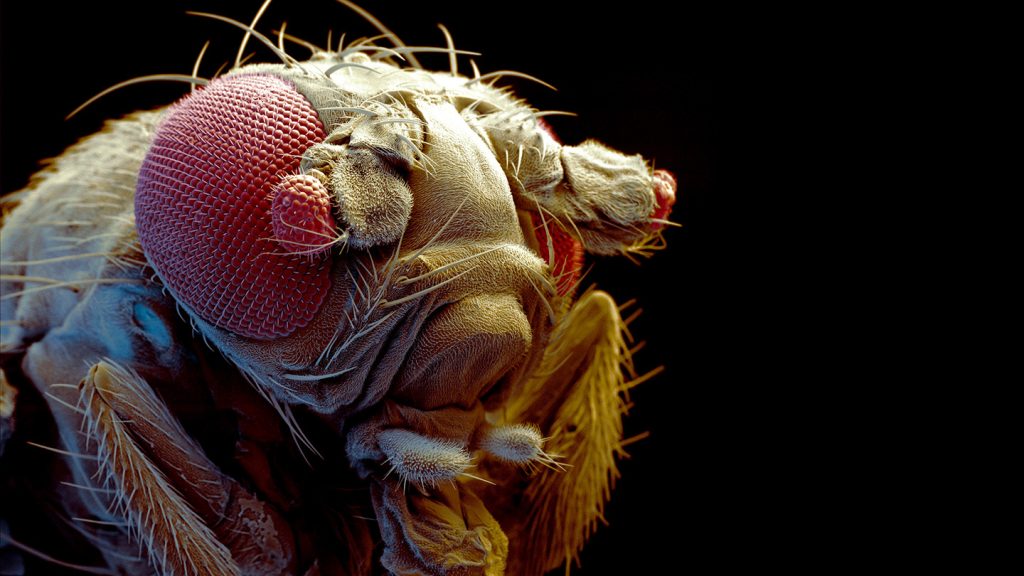In Nigeria, biochemist Amos Abolaji brought back jars of fruit flies after conducting postdoctoral research in Brazil. Fruit flies are being used in biomedical research in Africa as they are cheap, easy to raise, require little lab space, provide quick results, and can boost research capabilities. Abolaji converted his office into a fly lab and became a key figure in establishing fruit fly research in Africa. Fruit flies have a high potential to address public health needs, connect local scientists with the global research community, and build research capabilities in Africa.
Research utilizing fruit flies has a long history, with the insect entering the lab in 1900. The Drosophila melanogaster quickly gained popularity due to their short life cycle, making them valuable for genetic and developmental studies. Fruit flies have contributed to key scientific discoveries and nine Nobel Prizes have been awarded based on research done with fruit flies. The ease of care and versatility of fruit flies make them popular model organisms for studying genetics, development, and toxicology.
Initiatives like DrosAfrica aim to expand the use of fruit flies in Africa by hosting workshops and training local scientists in fruit fly research. Researchers like Rashidatu Abdulazeez from Nigeria have been successful in studying genetic variations in D. melanogaster populations. Abdulazeez is now a lecturer at Ahmadu Bello University and is passionate about utilizing fruit flies in research to address human health issues. Setting up fruit fly research centers in Africa can provide low-cost opportunities for crucial research.
By leveraging fruit flies, researchers like Hayet Sellami from Tunisia aim to create drug-screening factories to identify new medical treatments quickly and cost-effectively. Establishing fruit fly research units in African institutions can lead to practical research with implications for healthcare advancements, such as identifying new antifungal drugs. International collaborations between African scientists and researchers from the West are helping to advance fruit fly research in Africa and address pressing health concerns.
The legacy of colonization in Africa has left many areas with limited research funding, making it difficult for students to conduct meaningful research using expensive rodent models. Fruit flies offer a cost-effective alternative that can turn limited funds into valuable research data. Through initiatives like Droso4Nigeria and collaborations with international researchers, African scientists are driving research questions and developing the next generation of researchers in Africa. Fruit fly research has the potential to address urgent health needs, inspire young scientists, and contribute to the growing scientific community in Africa.


